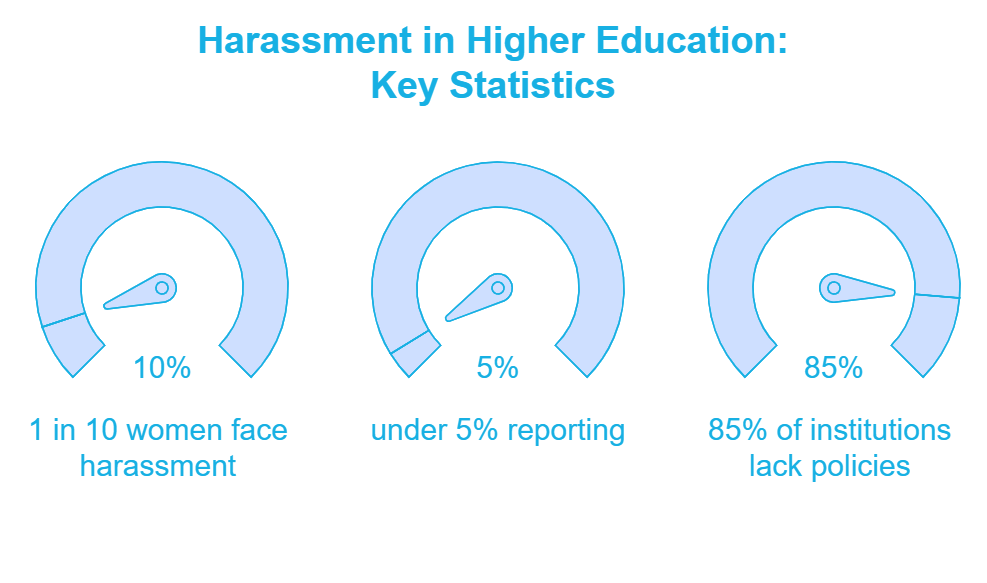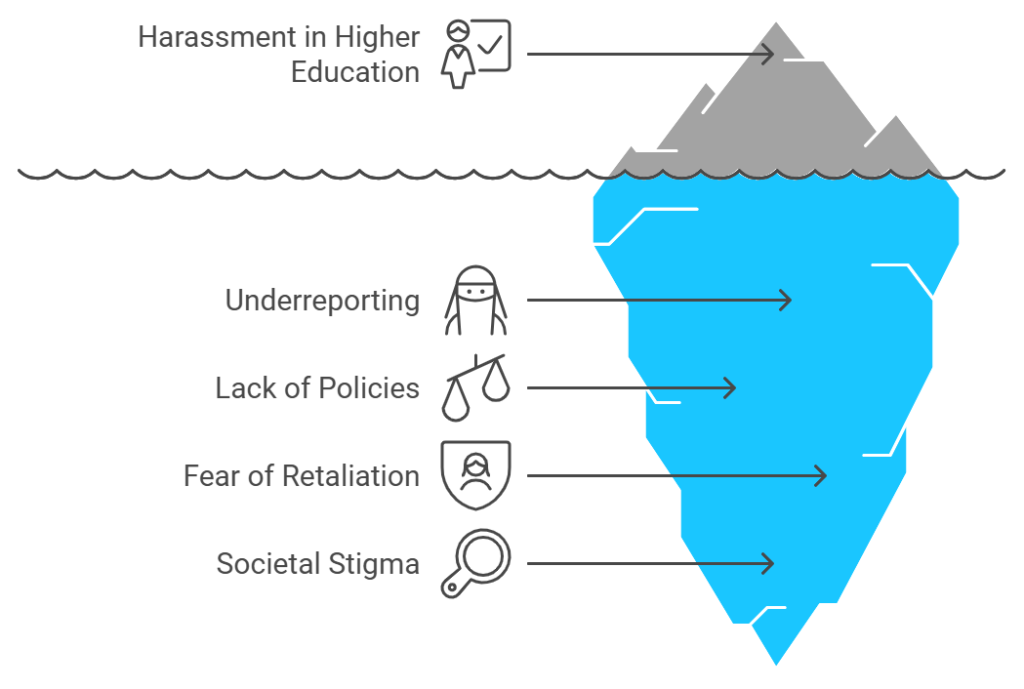On May 7, 2022, a trust was shattered at one of India’s premier educational institutions. For months afterward, a student at IIIT-Delhi would walk the campus corridors with a weight that no young person should bear – the trauma of sexual assault perpetrated by someone she had considered a friend. But what began as a personal nightmare would eventually catalyze institutional change, demonstrating how one voice, amplified by thousands, could transform campus safety culture.

Sections
The Burden of Silence
“I felt like there were no protections in place, no avenues for justice,” recalls Pragya Sikka, describing the months following her assault. The perpetrator was not just another student – he was a trusted confidante, a batchmate whose betrayal cut deeper than the assault itself. Each day brought fresh wounds as she encountered him on campus, watching him continue his life unaffected while she struggled with invisible scars.

The statistics paint a disturbing picture of campus safety in India’s higher education institutions. One in ten women face sexual harassment during their college years, yet less than 5% of victims notify college authorities. More alarming still, 85% of educational institutions lack proper policies to handle sexual harassment accusations, despite legal requirements to do so.
For Pragya, these weren’t just numbers – they represented a systemic failure that forced survivors like her into silence. “I didn’t know who to speak to, where to complain, how to complain,” she says, echoing the confusion and helplessness felt by countless others in similar situations.
Breaking the Silence
By April 2023, Pragya’s personal pain had transformed into determination. Working with the Nguvu Collective and Change.org, she launched the #MakeCampusesSafer campaign. Her demands were clear and practical: zero-tolerance policies for sexual harassment, visible information boards with QR codes linking to complaint procedures, and mandatory awareness sessions during orientation and throughout the semester.
“I was scared,” Pragya admits. “As a woman and survivor, it is never easy to share your experiences, grief, and anger out in public.” But her courage struck a chord. What began with a handful of signatures soon grew into a movement. Students from IIIT-Delhi, alumni, and even supporters from different countries rallied behind her cause. By June 1, 2023, the petition had gathered 500 signatures. Within weeks, that number had surged to 3,500, and eventually to over 8,000 supporters.
Institutional Response: From Recognition to Action
The campaign reached a turning point on June 8, 2023, when IIIT-Delhi’s Internal Complaints Committee (ICC) Chairperson reached out to Pragya directly. “It was my first experience of a decision maker taking the initiative to engage with a petition starter,” she recalls, “and it filled my soul with hope.”
The response was swift and comprehensive. By June 12, the ICC’s website had been updated with crucial information about reporting incidents and seeking support. But the real transformation became visible on June 22, when posters began appearing across campus – including in the boys’ hostel – detailing what constitutes harassment and how to report it.
“This gave me goosebumps,” Pragya says, describing the moment a junior sent her photos of the new posters. “Now every single student who enters IIIT-D knows what to do and who to turn to when they feel unsafe on campus.”
Beyond Posters: Cultural Transformation
The changes went far beyond visual reminders. IIIT-Delhi integrated sexual harassment awareness into its mandatory orientation sessions for new students. The student council and senate became active participants in raising awareness about the ICC’s existence and function.
Perhaps most significantly, the institute introduced a two-credit course on Comprehensive Gender Sensitization, spearheaded by ICC member Dr. Smriti Singh. This academic approach to addressing gender-based violence demonstrates the institution’s commitment to long-term cultural change.
A Movement Grows
What began as one survivor’s quest for justice has evolved into a broader movement for campus safety across India. Through #ProjectCampusAllies, Pragya and her supporters now conduct free workshops on Prevention and Redressal of Sexual Assault for college students nationwide.

“If the change we are seeking saves even one student from trauma, it will be worth every bit,” Pragya emphasizes. Her initiative has created a template for other institutions to follow, proving that meaningful change is possible when survivors find their voice and institutions listen.
The Road Ahead
While IIIT-Delhi’s response sets a positive example, the broader statistics on campus safety in India suggest much work remains. The success of #MakeCampusesSafer demonstrates that change requires both brave individuals willing to speak out and institutions ready to respond with concrete action.
“Let’s continue this fight, let’s spread awareness, let’s keep making campuses safer, and let’s bring hope to every survivor out there,” Pragya urges. Through social media (@make.campuses.safer on Instagram) and continued advocacy, the movement she started continues to grow.
For Pragya, the victory at IIIT-Delhi represents not an endpoint but a beginning. Her story shows that while institutional change may begin with personal pain, it flourishes through collective action and institutional commitment. As new students enter IIIT-Delhi’s gates each year, they join a community forever changed by one student’s courage to speak up and an institution’s willingness to listen and act.
Statistics Source: The Wire
Story source: change.org



